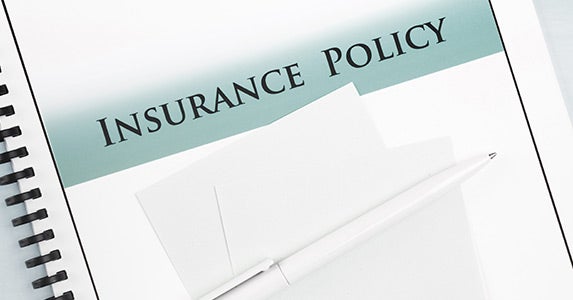6 tips for financial planning in your 40s


Financial planning in your 40s

If you’re in your 40s, you could be considered either a late baby boomer or a member of Generation X. Either way, you’re at a time in your life when you’re putting youth aside and should be doing some financial planning for your future and your family’s future.
A dilemma faced by people in their 40s is that they typically need to be saving for college tuition for their kids and putting money into a retirement account while simultaneously buying a house or saving for a down payment. Financial experts can help you sort out where your savings should be going in your 40s.
“Not having a financial plan is actually just having a really bad plan,” says Alexa von Tobel, founder and CEO of LearnVest.com in New York. “Every financial plan is specific to the individual, but you should look at your income and set priorities for paying off debt and saving for different needs.”
These financial planning tips are meant to help 40-somethings find balance in their hectic lives of spending and debt.
Build up your cash reserves

Roy Laux, president of Synergy Financial Services in McKeesport, Pennsylvania, says the first step in any financial planning is to establish an emergency fund.
“You should have three to six months of your normal income in an account that’s safe and liquid,” Laux says. “You should also have in that account savings for planned expenses. For instance, if you know you need to replace your furnace in a few years, you should be setting aside money for that in your savings account.”
Ronya Corey, a wealth management adviser with Merrill Lynch Wealth Management in Washington, D.C., says that two-income households may be safe enough with three months of expenses saved, while a single person might need six months of reserves.
“There’s no right or wrong answer about how much cash to have, but you need to be prepared in case your roof needs replacing or if you lose your job,” Corey says.
Reduce your debt

If you have credit card debt, student loan debt or medical bills, your next priority should be to reduce and eventually eliminate that debt so that your income can be channeled into saving and investing for the future.
“If you have credit card debt, you need to work on paying that down as quickly as you can,” Corey says. “If you have student loan debt, then you should first look to see if it’s tax-deductible based on your tax bracket. If not, then you should pay that off as soon as possible, too.”
In addition to financial planning, Corey says you should check the interest rates on your credit cards and student loans to see if you can find lower rates.
“If you have a lot of debt, you should be using all available funds to pay it off,” Corey says. “If you have a little bit of debt and you have, for example, $2,000 per month for savings, you should use one-third to pay down your debt, and then use the rest for retirement savings.”
Max out your employee benefits

“In your 40s, you should at least be saving as much in your 401(k) as your employer matches,” Laux says. “Even if you weren’t making any profit on that investment, your money doubles just because of the employer match.”
Corey says since every employer has a different retirement plan, you should find out how much you can contribute, and maximize your contributions up to that limit.
“Find out how your pretax contribution will impact your cash flow because you may be able to contribute more than you think,” Corey says.
People in their 40s can contribute up to $18,000 in a tax-deferred 401(k) in 2015.
“Hopefully, the employer-sponsored retirement plan has someone who can explain the investment options within the plan,” Laux says. “In particular, people need to understand why it may be better to be a little more aggressive with their investments at 42 than at 62.”
Make your own retirement plans

In addition to saving for retirement at work, Merrill Lynch’s Corey recommends making the maximum allowable contributions to a traditional individual retirement account or a Roth IRA, depending on your income.
“The amount you can contribute to a Roth or a traditional IRA went up to $5,500 in 2013 for people in their 40s,” Corey says. “The difference between them is that with a Roth IRA, you pay taxes now on your contributions, but you avoid a potentially higher tax later. If you think tax rates are going up, like I do, then a Roth IRA may make more sense.”
Traditional IRA contributions are not limited by income, but Roth IRAs are only available to married couples with an adjusted gross income of up to $183,000 and single filers with an adjusted gross income up to $116,000 in 2015.
“At 40, retirement seems very far away, but it is so important to contribute the maximum you can to retirement savings,” says Corey. “If you’ll be living on $80,000 per year when you’re retired, you’ll need $2 million in assets. I wouldn’t include Social Security benefits in your planning if you’re in your 40s, either because it may not be available or it will be means-tested.”
Save for college tuition

If you’re in your 40s and have kids, you may have already started saving for their college tuition, depending on their age. The best advice from financial advisers is to start saving as early as possible after your kids are born, even if you can save only a small amount. Hopefully, you can increase the amount you save for college as your income rises.
You can begin a 529 college savings plan to reduce the amount you or your kids may have to borrow to attend college. Many state universities also offer a prepaid tuition plan that allows you to lock in tuition at current rates.
Laux says that families need to have a rational conversation about ways to minimize college expenses, such as choosing a state school over a private college, doing military service or spending the first two years at a community college followed by two years at a four-year university.
“One of the best things to do is to start saving as early as possible for college,” Laux says. “If you’re in your 40s and your kids are near college age and you haven’t saved much for retirement, it’s not necessarily wise or appropriate to pay for all of their college expenses.”
Laux says one option is to have your kids pay some of their own costs by working during their college years.
Insure your family

“It’s important for people in their 40s to do an insurance-needs analysis,” Corey says. “Often, people in this age group need a lot of life insurance because they have young kids and day care costs that could be higher if one spouse passed away. It’s hard for a lot of people to have saved enough to take care of their family without life insurance if someone passes away.”
Corey says term life insurance, especially for a healthy person in his or her 40s, is relatively inexpensive.
“Most people think they are appropriately covered with their insurance policies, but they find out after a disaster that they’re not,” von Tobel says. “You should check your health insurance, your home insurance, your auto insurance and your life insurance policies to make sure you have the right coverage. An umbrella insurance policy that adds a layer of protection over your auto and home insurance is also a good idea, particularly if you have assets over $1 million.”
Laux says 40-somethings also should check on their disability insurance to be sure they have coverage and to estimate whether they need additional insurance. Most companies provide only up to 60 percent of your income if you are disabled, he says.
Why we ask for feedback Your feedback helps us improve our content and services. It takes less than a minute to complete.
Your responses are anonymous and will only be used for improving our website.
You may also like

7 tips to build wealth in your 30s



